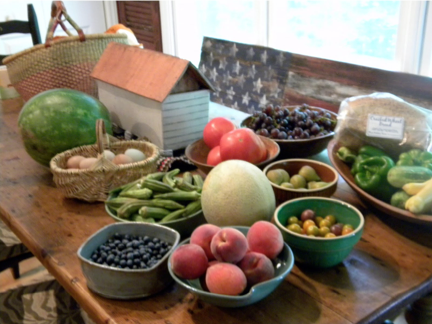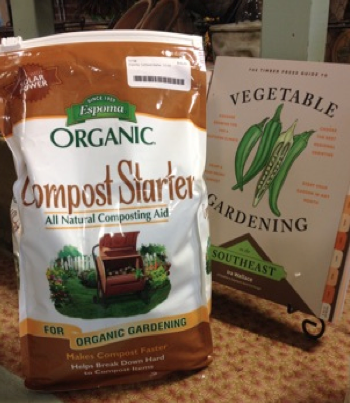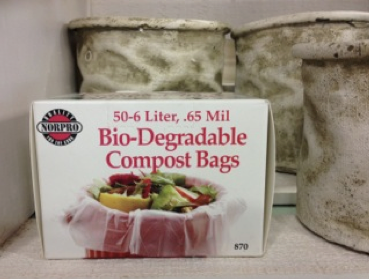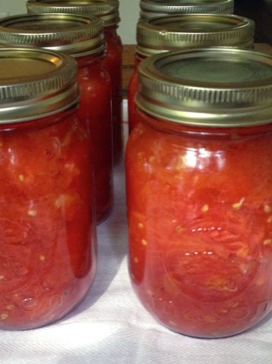 Recently, the U.S. Department of Agriculture and the Environmental Protection Agency announced the first official national goal for decreasing food waste across the country. Partnering with state and local governments, private companies, and charitable organizations, the goal is aimed at reducing food waste by 50 percent by the year 2030.Each year, around 40 percent of food produced in the U.S. goes to waste. It is estimated that 25-40% of the food grown, processed and shipped will never even be consumed. Although food is wasted at the farm, in transit and on store shelves, studies show that most of the food waste occurs in our own homes.
Recently, the U.S. Department of Agriculture and the Environmental Protection Agency announced the first official national goal for decreasing food waste across the country. Partnering with state and local governments, private companies, and charitable organizations, the goal is aimed at reducing food waste by 50 percent by the year 2030.Each year, around 40 percent of food produced in the U.S. goes to waste. It is estimated that 25-40% of the food grown, processed and shipped will never even be consumed. Although food is wasted at the farm, in transit and on store shelves, studies show that most of the food waste occurs in our own homes.
In addition to the resources wasted in food production, nearly all of the food waste ends up in landfills, where it decomposes and releases methane, a potent greenhouse gas. Food waste today is now the single largest contributor to landfills. According to the EPA, more food goes into landfills than any other type of municipal solid waste.
In the landfill, food waste is deprived of oxygen and rots anaerobically, generating around 25% of all methane emissions in the US. When you compare methane with carbon dioxide’s effect on global warming, methane is 25 times worse. It’s estimated that eliminating food waste would have the same impact on greenhouse gas emissions as taking one fourth of all cars in the United States off the road.
Addressing the issues of food waste from industry, restaurants, colleges, farms and groceries is a daunting and overwhelming task, but there are steps we can take at the local level and in our own homes. Starting small, we can all make a difference with the choices we make in purchasing, growing, preparing and disposing of the food we consume.
Reducing personal food waste is an easy way to trim household bills and the environmental footprint. So what can one person do to help reduce food waste? Here are several ideas:
Compost your food waste
At Fifth Season, we sell a number of items that can help you with composting, even if you live in a small house or apartment without a garden space.
Compost Keepers
 Store peelings, egg shells, coffee grounds, greens, clippings, fruit and vegetable scraps. Includes charcoal free odor preventing filter in lid. Fifth Season has several varieties to choose from, including stainless, ceramic, and plastic options.
Store peelings, egg shells, coffee grounds, greens, clippings, fruit and vegetable scraps. Includes charcoal free odor preventing filter in lid. Fifth Season has several varieties to choose from, including stainless, ceramic, and plastic options.
Use the compost you create to feed your vegetables, fruits and/or house plants, or if you don’t have a green thumb, pass on your nutrients to a neighbor, local community or school garden.
For larger composting projects, Fifth Season sells spin bin tumblers. The tumbler includes slots that provide excellent ventilation and aeration, as well as drainage to help maintain a healthy
compost bin. There are compost thermometer ports that provide easy access to monitor compost temperature and the bin is raised above ground with locking lids for critter control.
 To further help your composting efforts, Fifth Season also sells bio-degradable compost bags, compost starter, and compost thermometers. No excuse to not get started composting, even in a small way!
To further help your composting efforts, Fifth Season also sells bio-degradable compost bags, compost starter, and compost thermometers. No excuse to not get started composting, even in a small way!
Track your family’s waste
Keep a notebook near your kitchen garbage and compost keeper. For one month or even a couple of weeks, make a note when discarding food. Include moldy breads, sketchy leftovers, shriveled fruit, wilted greens, anything expired or scraped off the plate at the end of a meal. Ask the kids to bring home lunch box leftovers instead of throwing them out at school. After a few weeks, you should start to see a pattern. Maybe you’re overestimating milk consumption, buy smaller cartons. Maybe the leftovers don’t look so great after all, prepare smaller quantities the first time. Maybe you are optimistic that your kids will eat the fruits and vegetables you pack, offer smaller amounts. Maybe you should buy half loaves of that bread that has fewer preservatives, instead of throwing out the mold. Instead of throwing out vegetable peelings and scraps, freeze them and use later for stocks and soups. Get some chickens and feed them your scraps. Its a win win, you get eggs and healthy chicks.
Tracking your waste will help with your food budget and keep that unused food from creating methane later.
Store Food Properly
Some fruits emit ethylene, an odorless gas that will accelerate the ripening and spoiling of many other fruits and vegetables. Keep those items separated in your fridge to prevent waste. Gassy fruits include apples, melons, and most stone fruits such as peaches and plums. Also remember many fruits, including avocados, pears, and tomatoes, should be kept at room temperature and in sight where you won’t forget to consume them right away.
If you shop at Fifth Season, you will know that we have all the tools for preserving your harvest. This includes canning supplies, as well as pickling and fermenting options. Don’t throw out that harvest you worked so hard to grow or shopped for at the farmers market, store it and preserve it properly to avoid wasting all that nutrition. You can even make wine with those grapes. We have the kits!
Grow Your Own
 More and more of us are feeling the urge to grow our own food, know the source of the nutrition we put into our bodies, reducing the footprint that mass food production creates. What in this world is better than walking out into your own backyard on a cool summer morning and seeing those seedlings you nurtured producing a ripe red tomato that you will enjoy with your lunch that day. If you grow what you need for yourself and your family, there will be much less food waste. You worked hard for that food, you for darn sure aren’t going to let it go to waste!
More and more of us are feeling the urge to grow our own food, know the source of the nutrition we put into our bodies, reducing the footprint that mass food production creates. What in this world is better than walking out into your own backyard on a cool summer morning and seeing those seedlings you nurtured producing a ripe red tomato that you will enjoy with your lunch that day. If you grow what you need for yourself and your family, there will be much less food waste. You worked hard for that food, you for darn sure aren’t going to let it go to waste!
Make Smarter Choices
We as consumers can make smarter choices to reduce the impact of food waste by not overbuying in the grocery store, managing portion sizes, supporting industries that address this issue, including your local grocers and restaurants and garden centers, and basically thinking about the food you consume, where it comes from, what it takes to get that food to you, and respecting the finite resources of our planet.

Bill says
Hi
Excellent article about food waste, here in the UK awareness of this issue is becoming more prevalent too. Your statement ‘Get some chickens and feed them your scraps’ raises a question though; in the UK, feeding chickens scraps from your kitchen is illegal (salmonella fears), is it not the same in the USA?
Regards
Bill
Harriet Glendon says
So many great advises! I’m recently trying to minimize the food wastage ta home and each new tip and ideas is welcome. Your post is very helpful and most of your suggestions seem to work pretty good for me. Thank you for sharing!
Anu kapoor says
Great Article!!! This help me out alot for my work.
Thanks for sharing.